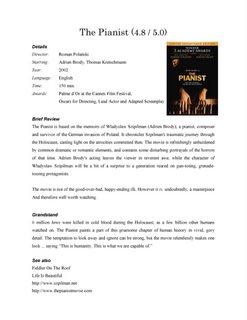Thirteenth Issue
Vox Populi
Issue 11
In an exclusive Vox Populi interview Sathyaraj V. talks to the Chairman, Reading Room about the state of Reading Room and Circulation Library
In an exclusive Vox Populi interview Sathyaraj V. talks to the Chairman, Reading Room about the state of Reading Room and Circulation Library
Ankur Verma, Ph.D, ChE
ankurv@iitk.ac.in
“If I fail to deliver my promises as I envisioned . . . those will be my failures”
1. What is the role of the Chairman, Reading Room?
In one sentence, to manage Reading Room and Circulation Library. Changing magazines and newspapers in Reading Room, keeping track of the subscription of magazines and newspapers etc.
2. What is the budget of Reading Room / Circulation Library? How much did you spend this time?
This year the reading room budget was Rs. 40,000/- and we shall be able to manage our expenses within this limit. On the other hand, Circulation Library is self-supportive i.e., no fund is provided from the Hall establishment fund. It is fully managed by the funds generated from the subscription and the fine from its members. If we assume 125 Circulation Library members through out a year, annual income will be approximately Rs. 10,000/-. We generate about thousand rupees from the auction of old magazines and other gifts. There is also some income from the fine etc. So roughly we generate Rs. 12,000/- per year. Luckily this year we have generated approximately Rs. 25,000/- because the subscription charges were not collected for the last four semesters. So, fortunately, we have enriched the library by spending around Rs. 22,000/-
3. Name some of your achievements and failures?
I shall not call it achievements; rather I say the promises that I accomplished to my satisfaction. This year we have improved the infrastructure of the Circulation Library by purchasing new racks. We have also purchased more than 100 new books this year. We have increased number of magazines in the Reading Room from 25 to 36 based on the readers’ demand. We have started Hall-4 wall magazine “Pratidhwani” to give a platform to the residents' voice. We are also in the process of publishing the Hall-4 annual magazine / yearbook. We have also started the work of re-cataloging all the books in Circulation Library, which is about to be completed. I am planning for a computer for the Circulation Library to facilitate library automation. Fortunately, very motivated team helps me. But, by the end of my tenure, if I fail to deliver some of my promises as I envisioned, I think those will be my failures.
4. Some of the challenges / difficulties you face, if any?
I always encourage the participation of general body in all key decisions. With this in mind, I conducted on-line surveys (regarding the newspapers, magazines and books). But unfortunately the response I got from the residents was not up to my expectations.
5. There are complaints about irregular opening of the Circulation Library. What is your reaction?
It is really a tough job to open library daily. I appreciate the efforts and hard work put by the Circulation Library volunteers, but sometimes there are genuine problems. To solve this problem, at least partially, I have put up a calendar in the Circulation Library to keep track of the days when the library is not open, and those days are exempted from the overdue fine. We are trying our best to reduce these irregularities. In the mean time I also like to invite more hall residents to become volunteers for the Circulation Library.
6. Your last word.
In the last nine months I enjoyed working for the Circulation Library and Reading Room. I have completed some of the things for which I have decided to be here. When I compare our Reading Room and Circulation Library with the other halls I find we have far better infrastructure. Now it is our responsibility to maintain it and evolve it to a better one. Looking forward to my successor...
In one sentence, to manage Reading Room and Circulation Library. Changing magazines and newspapers in Reading Room, keeping track of the subscription of magazines and newspapers etc.
2. What is the budget of Reading Room / Circulation Library? How much did you spend this time?
This year the reading room budget was Rs. 40,000/- and we shall be able to manage our expenses within this limit. On the other hand, Circulation Library is self-supportive i.e., no fund is provided from the Hall establishment fund. It is fully managed by the funds generated from the subscription and the fine from its members. If we assume 125 Circulation Library members through out a year, annual income will be approximately Rs. 10,000/-. We generate about thousand rupees from the auction of old magazines and other gifts. There is also some income from the fine etc. So roughly we generate Rs. 12,000/- per year. Luckily this year we have generated approximately Rs. 25,000/- because the subscription charges were not collected for the last four semesters. So, fortunately, we have enriched the library by spending around Rs. 22,000/-
3. Name some of your achievements and failures?
I shall not call it achievements; rather I say the promises that I accomplished to my satisfaction. This year we have improved the infrastructure of the Circulation Library by purchasing new racks. We have also purchased more than 100 new books this year. We have increased number of magazines in the Reading Room from 25 to 36 based on the readers’ demand. We have started Hall-4 wall magazine “Pratidhwani” to give a platform to the residents' voice. We are also in the process of publishing the Hall-4 annual magazine / yearbook. We have also started the work of re-cataloging all the books in Circulation Library, which is about to be completed. I am planning for a computer for the Circulation Library to facilitate library automation. Fortunately, very motivated team helps me. But, by the end of my tenure, if I fail to deliver some of my promises as I envisioned, I think those will be my failures.
4. Some of the challenges / difficulties you face, if any?
I always encourage the participation of general body in all key decisions. With this in mind, I conducted on-line surveys (regarding the newspapers, magazines and books). But unfortunately the response I got from the residents was not up to my expectations.
5. There are complaints about irregular opening of the Circulation Library. What is your reaction?
It is really a tough job to open library daily. I appreciate the efforts and hard work put by the Circulation Library volunteers, but sometimes there are genuine problems. To solve this problem, at least partially, I have put up a calendar in the Circulation Library to keep track of the days when the library is not open, and those days are exempted from the overdue fine. We are trying our best to reduce these irregularities. In the mean time I also like to invite more hall residents to become volunteers for the Circulation Library.
6. Your last word.
In the last nine months I enjoyed working for the Circulation Library and Reading Room. I have completed some of the things for which I have decided to be here. When I compare our Reading Room and Circulation Library with the other halls I find we have far better infrastructure. Now it is our responsibility to maintain it and evolve it to a better one. Looking forward to my successor...
Editor: Sathyaraj V.
Ph.D, HSS
A – 110/4
sathya@iitk.ac.in
______________________________
STATE OF READING ROOM AND CIRCULATION LIBRARY
Editors: Tuhin Kumar Pal and Sathyaraj V.
Literature and Society
Editor's Choice Top 100 Books

 ______________________________
______________________________
Movie Review
 ______________________________
______________________________
Ph.D, HSS
A – 110/4
sathya@iitk.ac.in
______________________________
STATE OF READING ROOM AND CIRCULATION LIBRARY
Editors: Tuhin Kumar Pal and Sathyaraj V.
There are some basic requirements that need to be taken care of:
1) All the newspapers or the magazines should be kept at proper places according to the titles.
2) Previous day’s newspapers should also be kept in cupboards in a properly archived manner.
3) There should be some RULES to impose a fine on littering the newspapers or the magazines on chairs or sofas.
4) Please, try to get rid of those menacing/buzzing mosquitoes. The READING ROOM should be neat and clean. Thus, inviting readers.
1) These days it has become literally impossible to find the current issue of the newspapers. It would be appreciable if some place is fixed for current newspapers and readers are asked to put the newspaper back to the specified place just after reading.
2) Readers should be asked to put the magazines back on the rack at selective place after reading.
3) If “the reading room committee” makes some RULES, then it should be take care of, that the same is followed by everyone. If someone is found violating these RULES, they should be fined.
I really appreciate the way things have been rearranged in our circulation library. In the mean time, certain things had gone out of track. One of the prompt examples to be brought forward is our reading room; you can get magazines at their place but it's really hard to track the newspapers at their specified places. Anyhow with great struggle you can manage the current newspaper but of the previous day's newspaper it’s really a distant dream. Rest is fine, if I consider the present scenario.
________________________1) All the newspapers or the magazines should be kept at proper places according to the titles.
2) Previous day’s newspapers should also be kept in cupboards in a properly archived manner.
3) There should be some RULES to impose a fine on littering the newspapers or the magazines on chairs or sofas.
4) Please, try to get rid of those menacing/buzzing mosquitoes. The READING ROOM should be neat and clean. Thus, inviting readers.
Ashisha Kumar
Ph D (Mathematics), ashishak@
________________________
I would like to share some of my views regarding the reading room:1) These days it has become literally impossible to find the current issue of the newspapers. It would be appreciable if some place is fixed for current newspapers and readers are asked to put the newspaper back to the specified place just after reading.
2) Readers should be asked to put the magazines back on the rack at selective place after reading.
3) If “the reading room committee” makes some RULES, then it should be take care of, that the same is followed by everyone. If someone is found violating these RULES, they should be fined.
Md Aquil
Ph D (Mathematics), mdaquil@
________________________
I really appreciate the way things have been rearranged in our circulation library. In the mean time, certain things had gone out of track. One of the prompt examples to be brought forward is our reading room; you can get magazines at their place but it's really hard to track the newspapers at their specified places. Anyhow with great struggle you can manage the current newspaper but of the previous day's newspaper it’s really a distant dream. Rest is fine, if I consider the present scenario.
Sarvendra Yadav
Ph D (HSS), sarvend@
Literature and Society
When I was in the sixth standard, we had a paper in social science. That paper was named “CIVICS”. In that paper I remember having read that the fundamental unit of society is the family. I would start this discussion with my family and then perhaps generalize on the issue.
My grandfather died young, and my father who was one of the seven children that my grandfather had, was left without a lot of funds to study. With tuitions and sustenance money from some kind relatives, he was able to complete his bachelor's degree and finally join the civilian services of the ministry of Defence, Government of India. My mother on the other hand was exposed to a wide range of literature right from those which Bengal takes pride in (Sharat Chandra, Bankim Chandra, Rabindranath etc.), to those which were translated from their original to Bengali (O Henry, Leo Tolstoy, Guy de Maupassant etc.) At medium school, I had light brushes with the likes of Premchand, Makanlal Chaturvedi, Ramdhari Singh Dinkar. Suryakanth Tripathi 'Nirala', Sumitra Nandan Pant etc. Each of the poems, short stories, long stories and novels written by these authors have often left me thinking for long hours. I often recall how I used to cry often in my younger days when I read “The Home Coming” by Rabindranath Tagore (available online at http://www.readbookonline.net/readOnLine/1757/) just thinking what I would have done if I was in Phatik's shoes and then consoling myself on the fact that my parents had sacrificed on their dresses and food habits to raise my brother and myself.
The literature I had read often spurred me to study about the circumstances of the author and his background. Rabindranath's works (available as Galpaguccha in 4 volumes) often reflected the lives of the people around him, the condition of widowed women, poverty and the fishermen. Sunil Gangopadhyay's Shei Shomoy (Those days), a literary phenomena, the popular blockbuster which received the Bankim and Akademi Awards, the book breathes life into the 19th century Bengali Bhodrolok (gentleman) Culture. (http://www.bharatbooks.com/bengali_authors/sunil_ganguly.htm). The culture of absentee landlords, the strange imitative cult of the Babu culture, the literary revolution - begun by Madhusudhan, Vidyasagar, DeRozario - all that is brought to life in the two volumes of the books. Munshi Premchand faced immense poverty in his childhood. The same is amply reflected in his story “Idgah” where a four year old boy named Hamid who cries for going to the fair and for six annas, and to his aunt's surprise, buys a pair of tongs (chimtaa) for her because her fingers get burnt while making rotis (http://www.vidyaonline.net/bookshelf/childrend.asp?ID=93). The hindi film Rang de Basanti, glamourised Ram Prasad Bismil's poem “Sarfaroshi Ki Tamanna”. Bismil who was one of the great freedom fighters, was also a poet by heart and each of his poems reflects poetic fervour. The events around him made him feel for the country.
This discussion on Literature and Society would go on and on for eons. Copious examples may be quoted where society and literature have influenced each other. But for this time, to end this article I must tell you that when I started writing my first romantic story, it was the same time when I had a crush on a lady to whom I could never propose.
My grandfather died young, and my father who was one of the seven children that my grandfather had, was left without a lot of funds to study. With tuitions and sustenance money from some kind relatives, he was able to complete his bachelor's degree and finally join the civilian services of the ministry of Defence, Government of India. My mother on the other hand was exposed to a wide range of literature right from those which Bengal takes pride in (Sharat Chandra, Bankim Chandra, Rabindranath etc.), to those which were translated from their original to Bengali (O Henry, Leo Tolstoy, Guy de Maupassant etc.) At medium school, I had light brushes with the likes of Premchand, Makanlal Chaturvedi, Ramdhari Singh Dinkar. Suryakanth Tripathi 'Nirala', Sumitra Nandan Pant etc. Each of the poems, short stories, long stories and novels written by these authors have often left me thinking for long hours. I often recall how I used to cry often in my younger days when I read “The Home Coming” by Rabindranath Tagore (available online at http://www.readbookonline.net/readOnLine/1757/) just thinking what I would have done if I was in Phatik's shoes and then consoling myself on the fact that my parents had sacrificed on their dresses and food habits to raise my brother and myself.
The literature I had read often spurred me to study about the circumstances of the author and his background. Rabindranath's works (available as Galpaguccha in 4 volumes) often reflected the lives of the people around him, the condition of widowed women, poverty and the fishermen. Sunil Gangopadhyay's Shei Shomoy (Those days), a literary phenomena, the popular blockbuster which received the Bankim and Akademi Awards, the book breathes life into the 19th century Bengali Bhodrolok (gentleman) Culture. (http://www.bharatbooks.com/bengali_authors/sunil_ganguly.htm). The culture of absentee landlords, the strange imitative cult of the Babu culture, the literary revolution - begun by Madhusudhan, Vidyasagar, DeRozario - all that is brought to life in the two volumes of the books. Munshi Premchand faced immense poverty in his childhood. The same is amply reflected in his story “Idgah” where a four year old boy named Hamid who cries for going to the fair and for six annas, and to his aunt's surprise, buys a pair of tongs (chimtaa) for her because her fingers get burnt while making rotis (http://www.vidyaonline.net/bookshelf/childrend.asp?ID=93). The hindi film Rang de Basanti, glamourised Ram Prasad Bismil's poem “Sarfaroshi Ki Tamanna”. Bismil who was one of the great freedom fighters, was also a poet by heart and each of his poems reflects poetic fervour. The events around him made him feel for the country.
This discussion on Literature and Society would go on and on for eons. Copious examples may be quoted where society and literature have influenced each other. But for this time, to end this article I must tell you that when I started writing my first romantic story, it was the same time when I had a crush on a lady to whom I could never propose.
- Suddhasheel Ghosh
PhD CE, shudh@
______________________________PhD CE, shudh@
Quote of the Week:
The belly is the reason why man does not mistake himself for a god.- Friedrich Nietzsche (1844-1900)
[Beyond Good and Evil, 1886]
______________________________[Beyond Good and Evil, 1886]
Editor's Choice Top 100 Books

 ______________________________
______________________________Movie Review
 ______________________________
______________________________